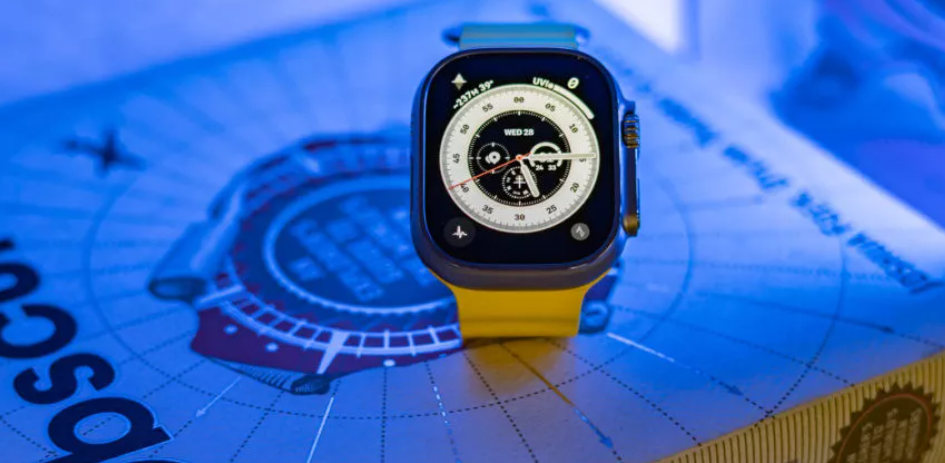According to a report from the Interfax news agency (Via Recruiter) On Friday, Russia’s Ministry of Digital Development, led by Minister Maksut Shadaev, had instituted a prohibition on the use of Apple iPhones and iPads by employees for work related purposes.
In a recent move that has caught the attention of tech enthusiasts and security experts alike, Russia has taken a bold step by banning the use of Apple iPhones and iPads for work purposes within its government organizations and state-owned companies. This decision, fueled by security concerns, has sent ripples through the technology landscape. In this comprehensive blog post, we will delve into the reasons behind Russia’s ban, the potential implications, and the broader implications for global tech companies.

Understanding the Ban: What Led to Russia’s Decision?
Russia’s Security Concerns and the Apple Ban
The ban on Apple iPhones and iPads for work-related activities within Russia’s governmental institutions stems from a deep-seated concern over data security. Russian authorities have expressed apprehensions about the potential vulnerabilities in Apple’s ecosystem, particularly in terms of data encryption, cloud storage, and potential backdoors that could compromise national security.
The announcement, made by the Russian Federal Security Service (FSB), has raised eyebrows due to its specific focus on Apple devices. While other countries also maintain a vigilant stance on technology security, Russia’s outright ban has set it apart. To better comprehend the reasons behind this drastic step, we must explore the existing tensions between tech companies and governments in safeguarding user data.
Tech Giants and Government Surveillance: A Global Balancing Act
Striking a Balance: Tech Giants, User Privacy, and Government Surveillance
The intersection of technology companies’ commitment to user privacy and governments’ security concerns is a complex and ongoing debate. Tech giants like Apple have consistently advocated for strong encryption to protect user data from unauthorized access, including government entities. However, this strong stance on privacy has sometimes strained relations with governments that seek access to encrypted data for security reasons.
Russia’s ban on Apple devices can be viewed within this context. While Apple has maintained a robust stance on encryption, Russian authorities have voiced concerns that this very encryption might hinder their ability to counter potential threats. The dichotomy between protecting individual privacy and ensuring national security underscores the challenges faced by tech companies in a globally connected world.

The Implications: What Does the Ban Entail?
Ramifications of Russia’s Apple Ban for National and Global Tech Sectors
Russia’s decision to ban Apple iPhones and iPads for official use has significant implications on multiple fronts. From a national perspective, this move reflects the heightened security priorities of the Russian government. It reinforces their determination to maintain control over sensitive information and communications within their governmental agencies and state-owned corporations.
On a global scale, this ban raises concerns about the future of tech companies operating within Russia. As a potentially precedent-setting move, it might pave the way for other countries to follow suit, leading to a fragmented tech landscape. Apple’s dominance in the smartphone and tablet market, coupled with its emphasis on user privacy, has positioned it at the center of this debate.
Navigating the Road Ahead: Challenges and Possibilities
Future of Tech Collaboration: Navigating Security Challenges and Collaboration
The ban imposed by Russia highlights the pressing need for open communication between tech companies and governments. Striking a balance between safeguarding user data and accommodating legitimate security concerns is a delicate undertaking. This incident could potentially spur increased collaboration between governments and tech giants to develop solutions that satisfy both parties.
Furthermore, the incident underscores the importance of diversified tech ecosystems. Relying heavily on a single brand can pose challenges in situations like these. Governments and organizations may reevaluate their device and software choices to mitigate such risks. This event could also motivate tech companies to invest more in research and development to enhance the security features of their products.
Conclusion
In the ever-evolving realm of technology and security, Russia’s ban on Apple iPhones and iPads for work-related activities has ignited a crucial conversation. This decision, driven by concerns about data security, has ramifications that extend beyond national borders. The incident highlights the complexities of balancing individual privacy and national security in a digital age. As we look toward the future, collaboration between tech companies and governments will play a pivotal role in shaping a secure and interconnected world.

